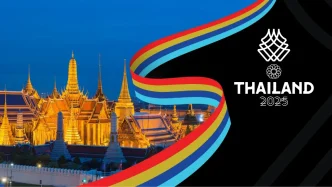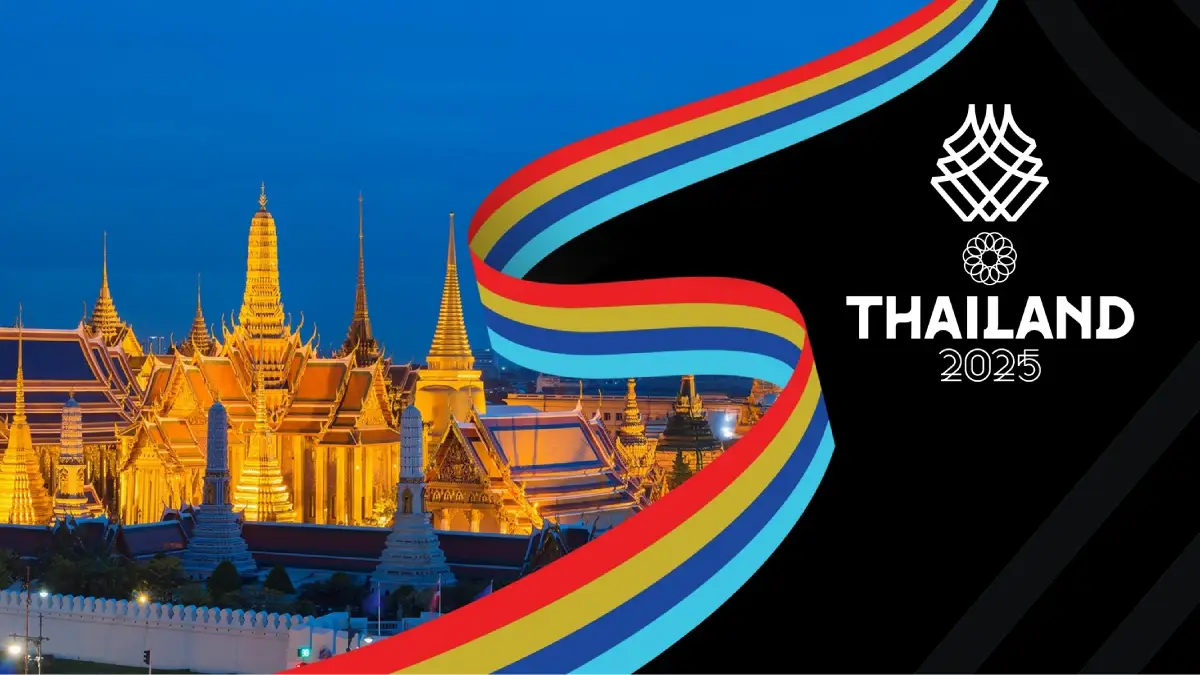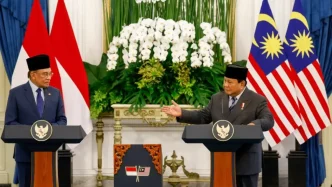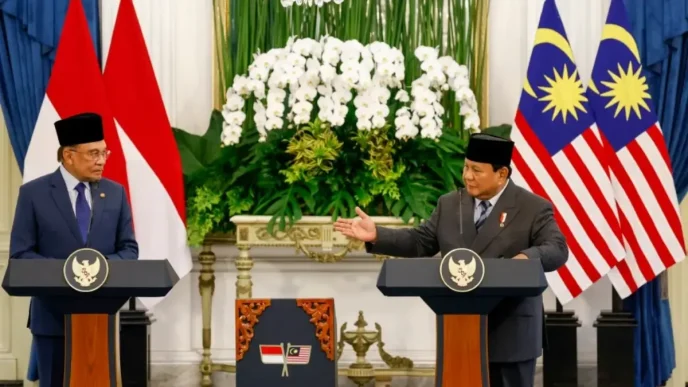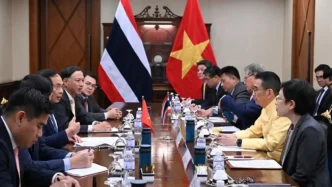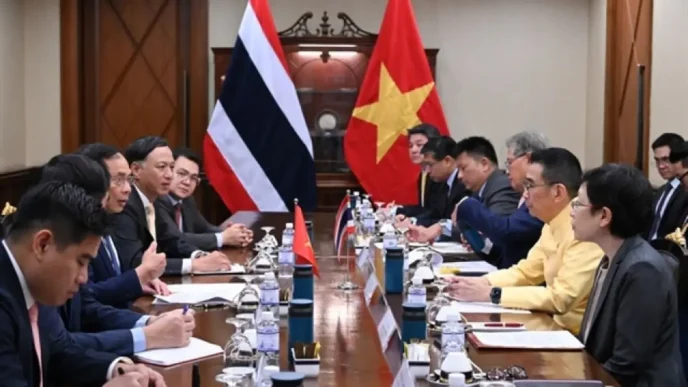As Thailand prepares to host the 33rd Southeast Asian (SEA) Games in December 2025, a contentious proposal by the country’s sports minister to exclude Cambodia from the regional sporting event has sparked controversy. The suggestion, rooted in ongoing border tensions, has been swiftly rebuffed by the SEA Games Federation Council, which insists on upholding Olympic principles of political neutrality and non-discrimination. With the issue set to dominate discussions at an upcoming council meeting, the row raises broader questions about the intersection of politics and sport in a region often marked by historical rivalries and unresolved disputes.
Minister’s Proposal Ignites Debate
Thailand’s Minister of Tourism and Sports, Sarawong Thianthong, recently told local media that he is considering a proposal to bar Cambodia from participating in the 2025 SEA Games, citing safety concerns for Cambodian athletes amid heightened public sentiment over border clashes. He emphasized the need for time to allow the Thai public to emotionally heal and suggested that the matter could be raised with the 11 ASEAN member states that form the SEA Games Council. “As a minister, I need to consult with the SEA Games Council president. If discussions about the conflict are serious, I believe a boycott proposal [towards Cambodia] is warranted because the matter is significant” Sarawong stated on July 27, 2025.
While acknowledging that Thailand’s sports ministry lacks the unilateral authority to ban a country from the event, Sarawong argued that the SEA Games Council holds jurisdiction over such decisions. He expressed hope that the council would carefully consider the proposal, framing it as a measure to protect both athletes and the integrity of the games. As a Thai representative, he added, “I may support a ban on Cambodia at the end-of-year 2025 SEA Games, but ultimately, it’s not up to Thailand alone. The SEA Games Council must review Cambodia’s eligibility.”
The border disputes between Thailand and Cambodia, particularly over areas like the Preah Vihear Temple, have long been a source of tension. These disagreements have periodically flared into diplomatic spats and even armed confrontations, fueling nationalist sentiments on both sides. Sarawong’s comments appear to reflect a broader frustration within certain Thai circles over these unresolved issues, though they risk politicizing a regional event meant to foster unity through sport.
SEA Games Council Rejects Exclusion
The response from the SEA Games Federation Council was unequivocal. Chaiyaphak Siriwat, the council’s president, dismissed the proposal on July 28, 2025, asserting that neither Thailand’s organizing committee nor the council itself has the authority to prohibit any member nation from competing, provided they remain in good standing and face no official sanctions. “The SEA Games Council or Thailand’s organising committee has no right to prohibit any member nation (including Cambodia) from competing in the SEA Games, as long as they remain members of the council and face no official sanctions” Chaiyaphak declared.
Chaiyaphak stressed that all decisions must adhere to the Olympic principles enshrined in the Olympic Charter, which prioritize political neutrality, non-discrimination, and the right of all member countries to participate. These principles, he argued, are the bedrock of international and regional sporting events like the SEA Games, ensuring that politics do not overshadow athletic competition. While he acknowledged the sensitivity of the border issue, Chaiyaphak maintained that it should not influence decisions about participation in the games.
The council president also confirmed that the matter will be discussed at the upcoming SEA Games Council meeting on August 20–21, 2025, where representatives from all 11 member nations will convene. The meeting is expected to reaffirm the guiding principles of the games, potentially putting an end to any speculation about Cambodia’s exclusion. However, the very fact that the issue has been raised could cast a shadow over preparations for the event, which is scheduled to take place from December 9–20, 2025.
Cambodia Stays the Course
Despite the controversy, Cambodia has shown no signs of altering its preparations for the 33rd SEA Games. Sports authorities in Phnom Penh have reiterated their commitment to the values and spirit of the Olympic movement, refusing to let political or external issues derail their participation. Cambodian teams continue to train as usual, with a focus on showcasing their athletic prowess on the regional stage.
Cambodia’s stance reflects a broader determination to separate sport from politics, a principle that has often been tested in Southeast Asia’s complex geopolitical landscape. The country successfully hosted the 32nd SEA Games in 2023, an event that was widely praised for its organization and hospitality, further cementing its place in the regional sporting community. Cambodian officials have so far refrained from directly addressing Sarawong’s comments, likely to avoid escalating tensions ahead of the council meeting.
Politics and Sport: A Troubled Intersection
The controversy over Cambodia’s potential exclusion from the 2025 SEA Games is a stark reminder of how easily political disputes can spill into the realm of sport. Southeast Asia, with its history of territorial disagreements and competing national interests, has often struggled to keep such issues separate from events meant to promote regional solidarity. The SEA Games, established in 1959 as the Southeast Asian Peninsular Games, were conceived as a platform for fostering friendship and mutual understanding among member nations. Yet, incidents like this highlight the fragility of that mission when bilateral tensions flare.
Thailand and Cambodia’s border disputes are just one of many fault lines in the region. Similar tensions have historically affected other ASEAN relationships, occasionally impacting sporting events. For instance, past SEA Games have seen logistical challenges and diplomatic friction over issues ranging from athlete safety to event hosting rights. The current row could set a precedent for how future disputes are handled within the framework of the SEA Games Council, especially as the region grapples with balancing national pride with collective goals.
Analysts suggest that Sarawong’s proposal, even if unlikely to succeed, risks damaging Thailand’s image as a host nation committed to fairness and inclusivity. The SEA Games are not only a sporting event but also a diplomatic stage, where countries showcase their cultural and organizational capabilities. By raising the possibility of a ban, Thailand may inadvertently undermine its own standing among ASEAN peers, particularly if the move is perceived as an attempt to politicize the games.
Broader Implications for ASEAN Unity
Beyond the immediate context of the SEA Games, this incident underscores the broader challenges facing ASEAN as it seeks to promote unity amid diversity. The organization, which marks its 58th anniversary in 2025, has long championed the principle of non-interference in member states’ internal affairs, a stance that extends to regional events like the SEA Games. However, border disputes, historical grievances, and domestic political pressures often test this commitment, creating friction that can disrupt even the most symbolic of collaborative efforts.
The SEA Games Council’s upcoming meeting will be a critical test of its ability to navigate these tensions. A decision to uphold Cambodia’s participation, as seems likely given Chaiyaphak’s remarks, would reinforce the council’s dedication to Olympic ideals. Conversely, any wavering or prolonged debate could embolden future attempts to exclude nations based on political disagreements, setting a dangerous precedent for the games and other regional initiatives.
For now, the focus remains on ensuring that the 33rd SEA Games proceed without further controversy. Thailand, as host, bears the responsibility of creating an environment where all athletes can compete safely and fairly, regardless of political undercurrents. The country’s ability to rise above bilateral tensions and deliver a successful event will be closely watched by its ASEAN neighbors, many of whom are eager to see sport triumph over division.
Looking Ahead to December
As the December 2025 SEA Games draw closer, the spotlight will inevitably remain on Thailand and Cambodia’s relationship, both on and off the field. While the SEA Games Council appears poised to reject any proposal to bar Cambodia, the very suggestion has already stirred debate about the role of politics in regional sport. For athletes from both nations, the priority will be to focus on competition rather than controversy, embodying the spirit of camaraderie that the games are meant to represent.
The outcome of the August council meeting will likely set the tone for the months ahead. If the principles of neutrality and inclusion prevail, the 33rd SEA Games could serve as a powerful reminder of sport’s potential to bridge divides. But as history has shown, unresolved tensions have a way of resurfacing, and the region will be watching closely to see whether Thailand can host an event that unites rather than divides.

